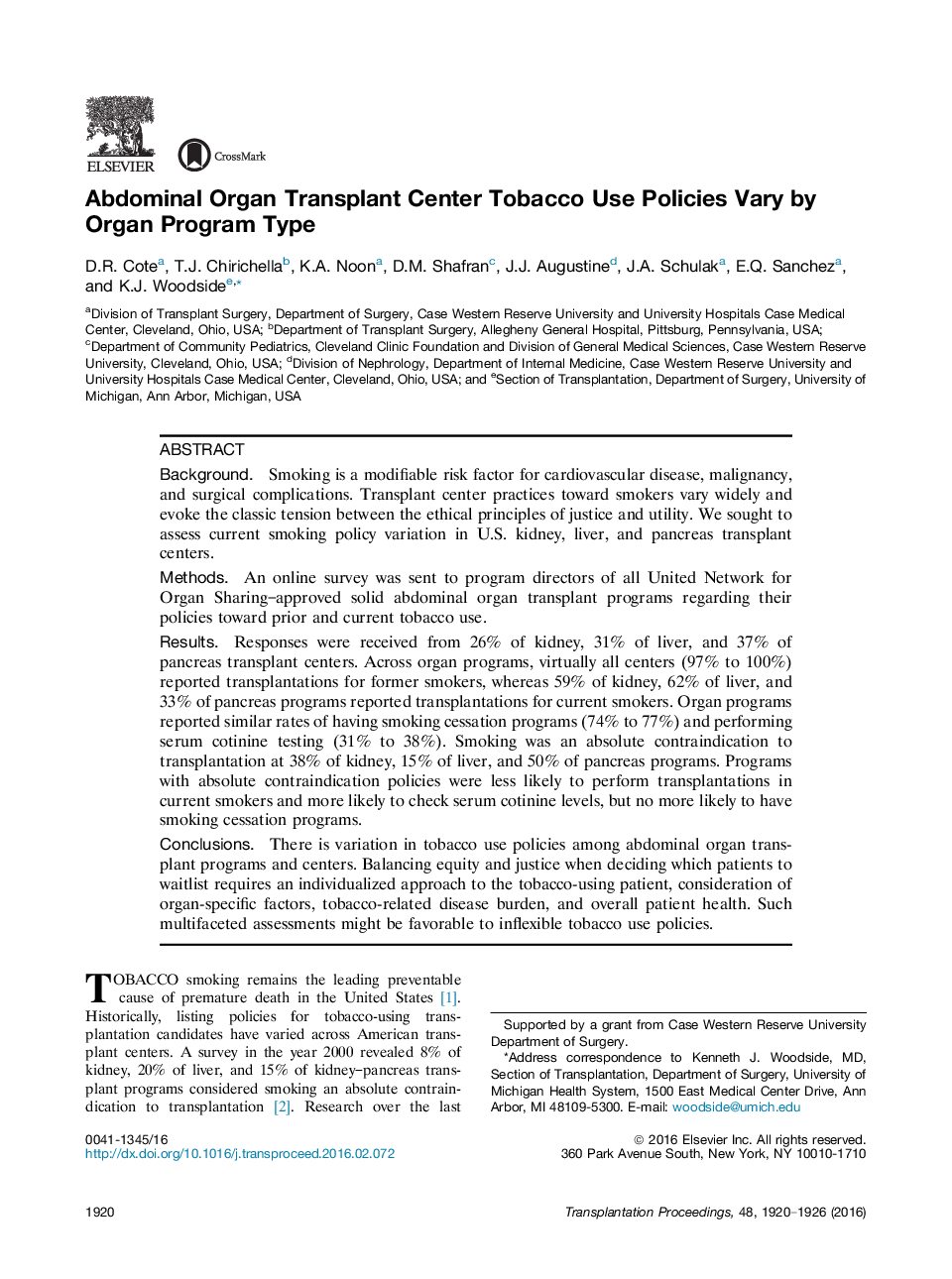| کد مقاله | کد نشریه | سال انتشار | مقاله انگلیسی | نسخه تمام متن |
|---|---|---|---|---|
| 5729123 | 1411676 | 2016 | 7 صفحه PDF | دانلود رایگان |
- Transplant center practices toward smokers vary widely and evoke the classic tension between the ethical principles of justice and utility.
- Using an online survey, we assessed current smoking policy variation in U.S. kidney, liver, and pancreas transplant centers.
- Responses were received from 26% of kidney, 31% of liver, and 37% of pancreas transplant centers.
- Across organ programs, virtually all centers (97% to 100%) reported transplantations for former smokers, whereas 59% of kidney, 62% of liver, and 33% of pancreas programs reported transplantations for current smokers.
- Organ programs reported similar rates of having smoking cessation programs (74% to 77%) and performing serum cotinine testing (31% to 38%). Balancing equity and justice when deciding which patients to waitlist requires an individualized approach to the tobacco-using patient, and consideration of organ-specific factors, tobacco-related disease burden, and overall patient health.
BackgroundSmoking is a modifiable risk factor for cardiovascular disease, malignancy, and surgical complications. Transplant center practices toward smokers vary widely and evoke the classic tension between the ethical principles of justice and utility. We sought to assess current smoking policy variation in U.S. kidney, liver, and pancreas transplant centers.MethodsAn online survey was sent to program directors of all United Network for Organ Sharing-approved solid abdominal organ transplant programs regarding their policies toward prior and current tobacco use.ResultsResponses were received from 26% of kidney, 31% of liver, and 37% of pancreas transplant centers. Across organ programs, virtually all centers (97% to 100%) reported transplantations for former smokers, whereas 59% of kidney, 62% of liver, and 33% of pancreas programs reported transplantations for current smokers. Organ programs reported similar rates of having smoking cessation programs (74% to 77%) and performing serum cotinine testing (31% to 38%). Smoking was an absolute contraindication to transplantation at 38% of kidney, 15% of liver, and 50% of pancreas programs. Programs with absolute contraindication policies were less likely to perform transplantations in current smokers and more likely to check serum cotinine levels, but no more likely to have smoking cessation programs.ConclusionsThere is variation in tobacco use policies among abdominal organ transplant programs and centers. Balancing equity and justice when deciding which patients to waitlist requires an individualized approach to the tobacco-using patient, consideration of organ-specific factors, tobacco-related disease burden, and overall patient health. Such multifaceted assessments might be favorable to inflexible tobacco use policies.
Journal: Transplantation Proceedings - Volume 48, Issue 6, JulyâAugust 2016, Pages 1920-1926
